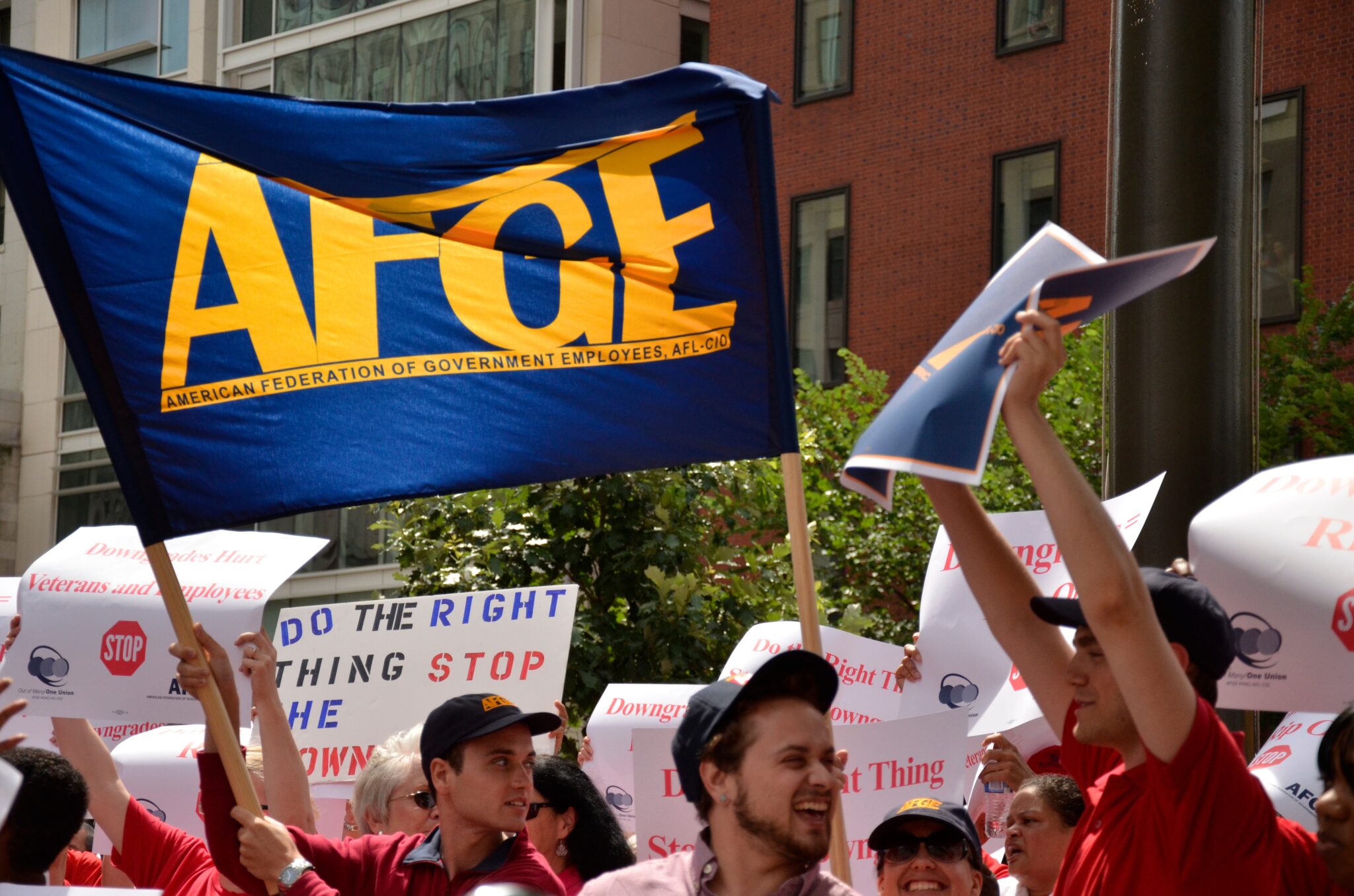
Otto Barenberg is a student at Harvard Law School and the Digital Director of OnLabor.
In today’s news and commentary, a federal judge blocks Trump from stripping federal workers’ labor rights, AFGE is cutting over 50% of its staff, and Harvard unions rally amid attacks on the university.
On Friday, a federal judge blocked a Trump executive order that purported to strip collective bargaining rights from over one million federal workers. The Trump directive exempted federal employees across over 40 agencies from federal labor protections, invoking the President’s authority under the Federal Service Labor-Management Relations Statute (FSLMRS) to exclude agencies that have as a “primary function . . . national security work.” The exemptions cover the Departments of Defense, Energy, State, Treasury, and Veterans Affairs, along with substantial portions of the Departments of Justice, Commerce, Homeland Security, and Health and Human Services. Judge Paul Friedman of the U.S. District Court for the District of Columbia granted the National Treasury Employees Union’s motion for a preliminary injunction, which NTEU President Doreen Greenwald called “a victory for federal employees.” “The preliminary injunction granted at NTEU’s request means the collective bargaining rights of federal employees will remain intact and the administration’s unlawful agenda to silence the voices of federal employees and dismantle unions is blocked,” Greenwald told Bloomberg Law. Importantly, the preliminary injunction covers Office of Personnel Management directives that have halted automatic dues collection at numerous federal agencies.
The American Federation of Government Employees, the largest union of federal workers, is planning to cut nearly 60% of its staff in the coming months. AFGE will reduce its workforce from 355 to approximately 150, cutting organizers, national representatives, support staff, and others across the organization’s Washington, D.C. and regional offices. In a statement, AFGE blamed the Administration’s curtailment of automatic dues deductions — temporarily halted by Judge Friedman — for the layoffs: “From Day 1 this Administration has sought to stamp out the voices of patriotic civil servants, and these attacks on their unions are no different. The President’s elimination of elective membership dues and the resulting layoffs are a setback, but they are not the end of AFGE — not by a longshot.” AFGE has led the charge against Trump’s efforts to gut the federal workforce, filing lawsuits to block terminations of probationary employees and to prevent Elon Musk’s Department of Government Efficiency from accessing sensitive employee data.
Today, unionized workers across Harvard University are rallying in support of the school’s stand against the Trump Administration — and in support of the workers, especially non-citizens, most affected by the ongoing attacks on the university. In March, Harvard implemented a university-wide hiring freeze; student workers and faculty have expressed concern over increased class sizes and the maintenance of smaller programs. “Many fields of study will vanish, and many languages simply won’t be offered,” said Jules Riegel, a lecturer in History and Literature. The precarious status of non-citizens has caused alarm among Harvard workers. “During the COVID-19 pandemic, international workers demonstrated their unwavering commitment to the Harvard community, ensuring its safety while risking their own lives and the wellbeing of their families. Now, it is the university’s turn to stand in solidarity with these individuals,” Doris Reina-Landaverde, a custodian and shop steward of 32BJ SEIU, told The Guardian.






Daily News & Commentary
Start your day with our roundup of the latest labor developments. See all
February 24
In today’s news and commentary, the NLRB uses the Obama-era Browning-Ferris standard, a fired National Park ranger sues the Department of Interior and the National Park Service, the NLRB closes out Amazon’s labor dispute on Staten Island, and OIRA signals changes to the Biden-era independent contractor rule. The NLRB ruled that Browning-Ferris Industries jointly employed […]
February 23
In today’s news and commentary, the Trump administration proposes a rule limiting employment authorization for asylum seekers and Matt Bruenig introduces a new LLM tool analyzing employer rules under Stericycle. Law360 reports that the Trump administration proposed a rule on Friday that would change the employment authorization process for asylum seekers. Under the proposed rule, […]
February 22
A petition for certiorari in Bivens v. Zep, New York nurses end their historic six-week-strike, and Professor Block argues for just cause protections in New York City.
February 20
An analysis of the Board's decisions since regaining a quorum; 5th Circuit dissent criticizes Wright Line, Thryv.
February 19
Union membership increases slightly; Washington farmworker bill fails to make it out of committee; and unions in Argentina are on strike protesting President Milei’s labor reform bill.
February 18
A ruling against forced labor in CO prisons; business coalition lacks standing to challenge captive audience ban; labor unions to participate in rent strike in MN